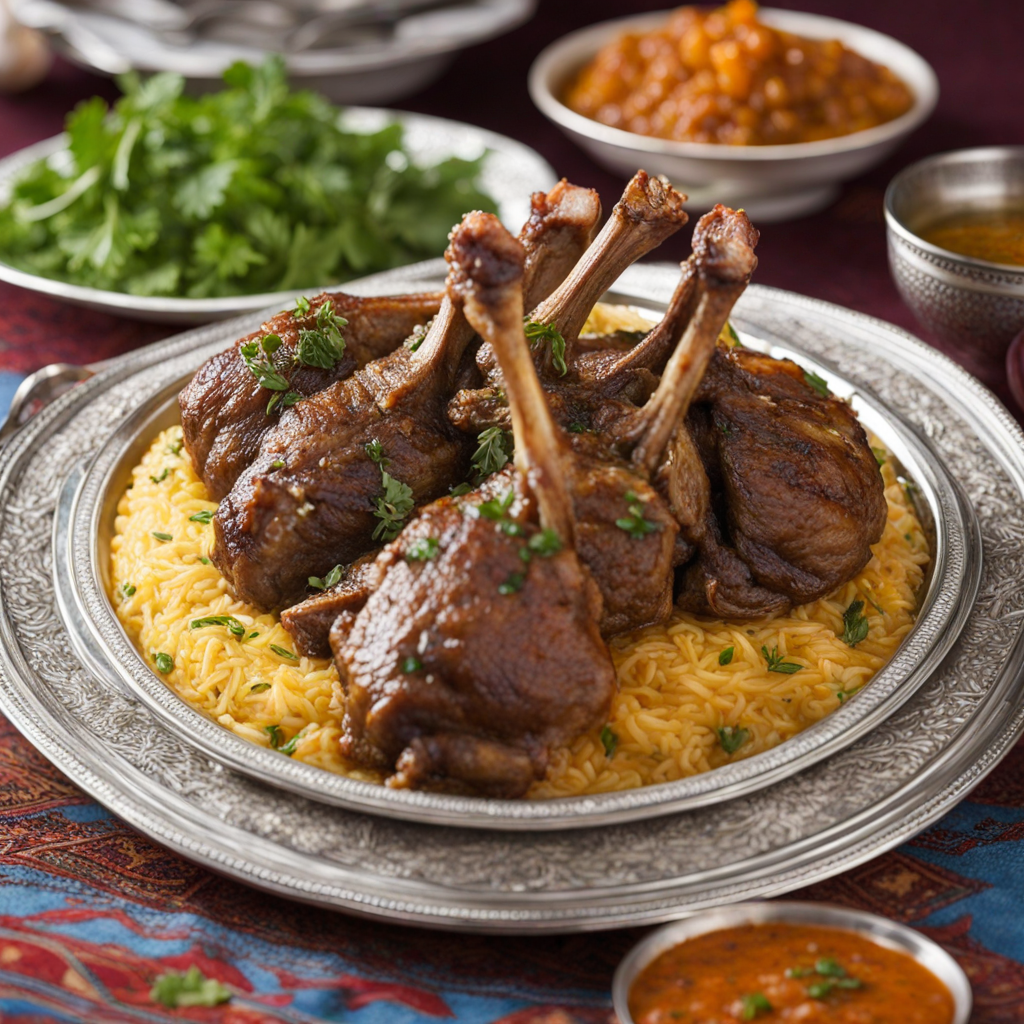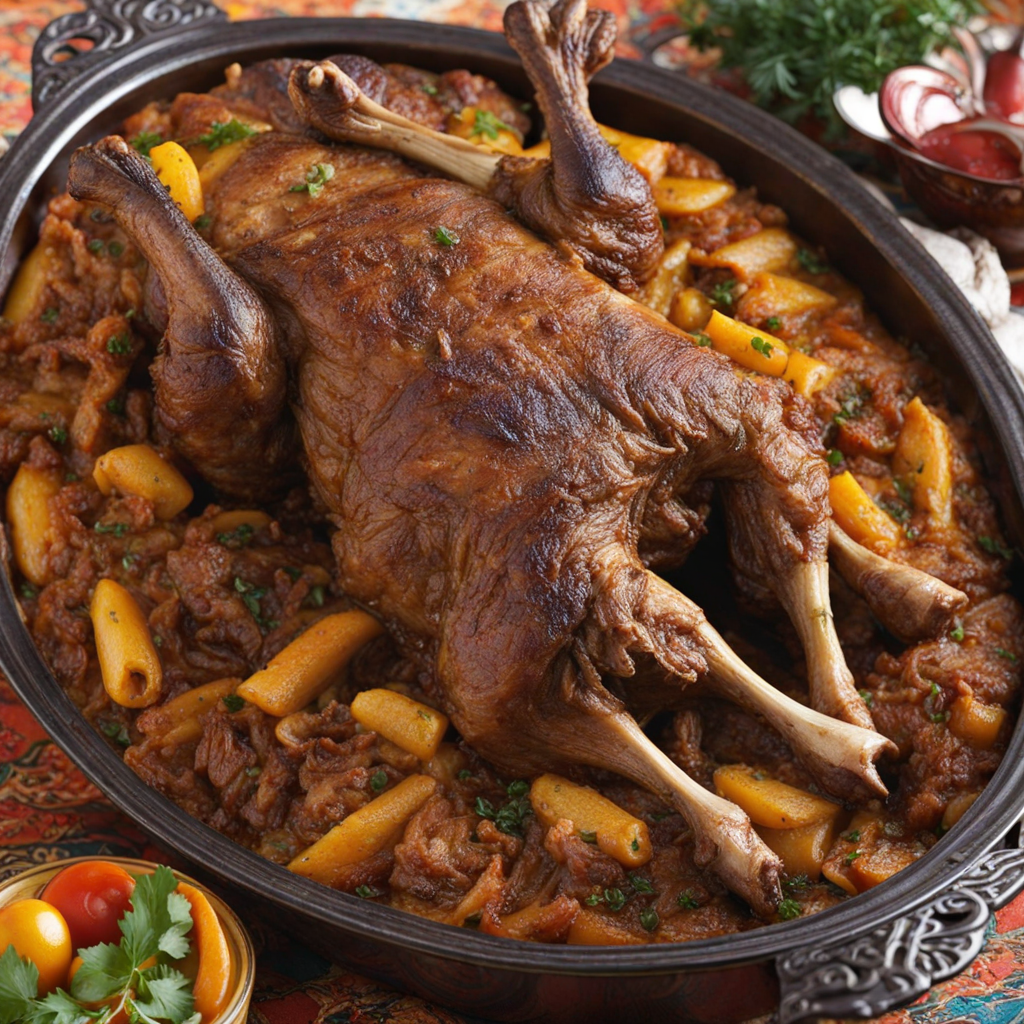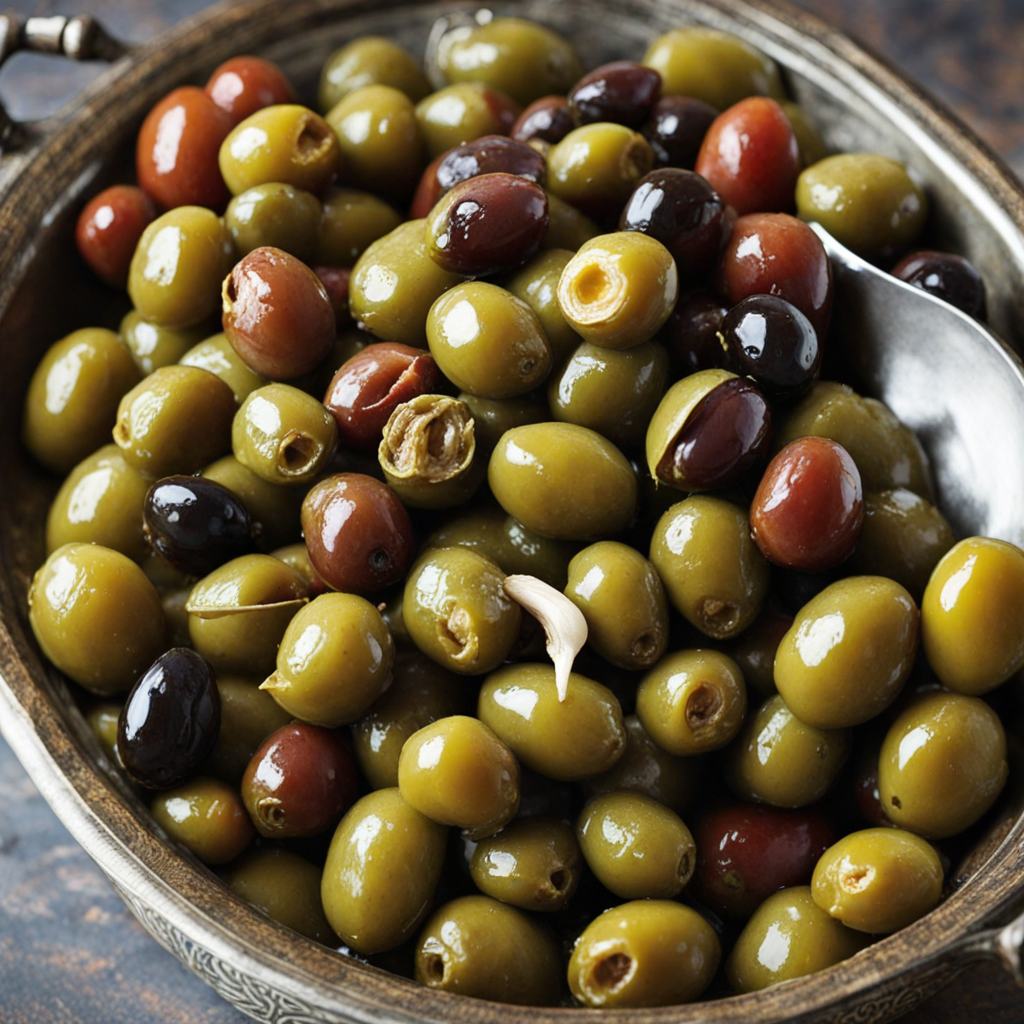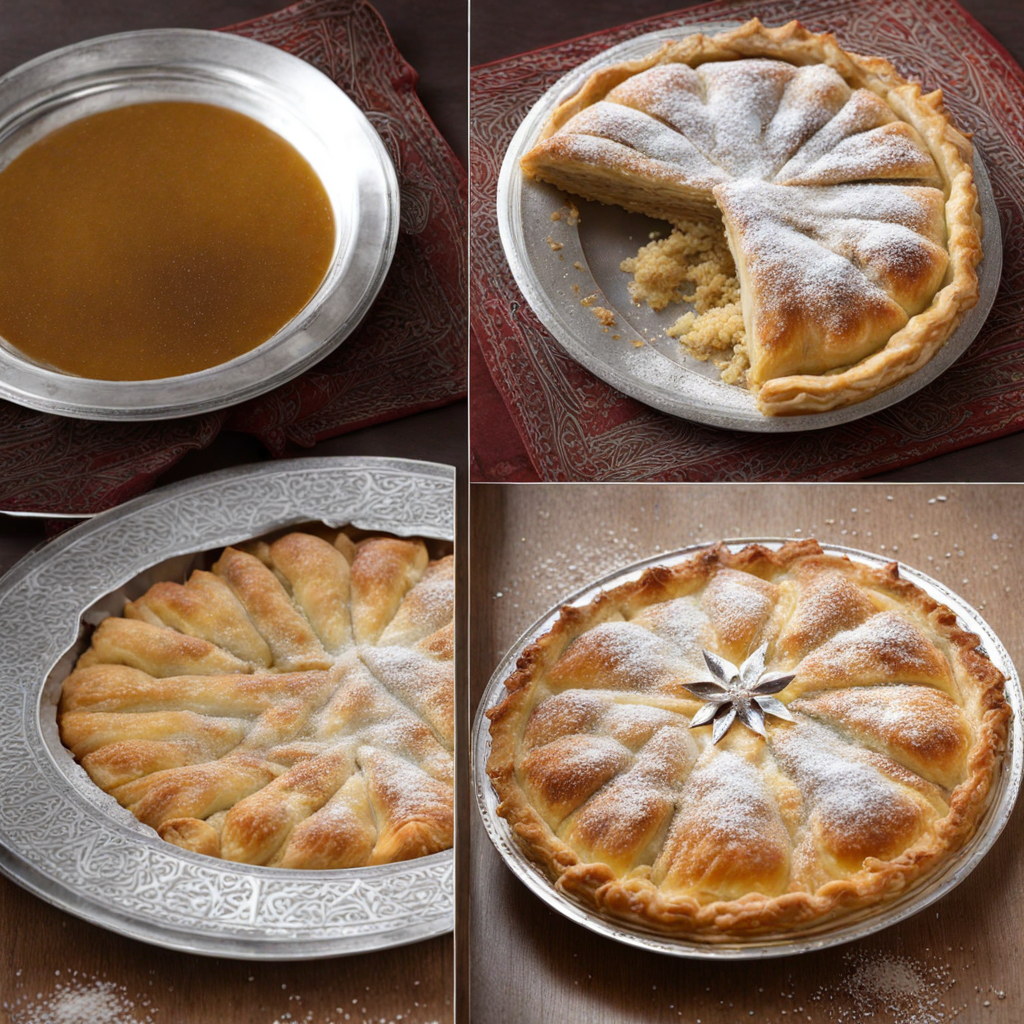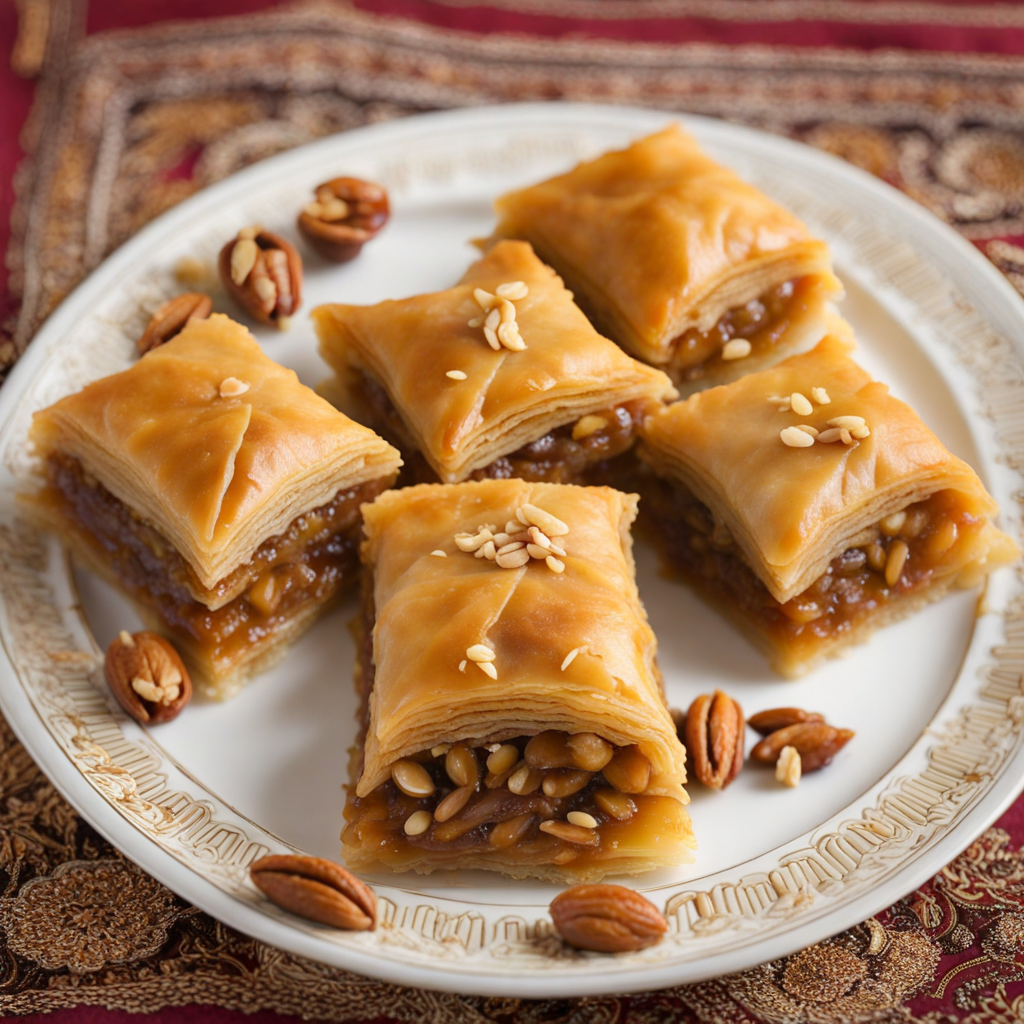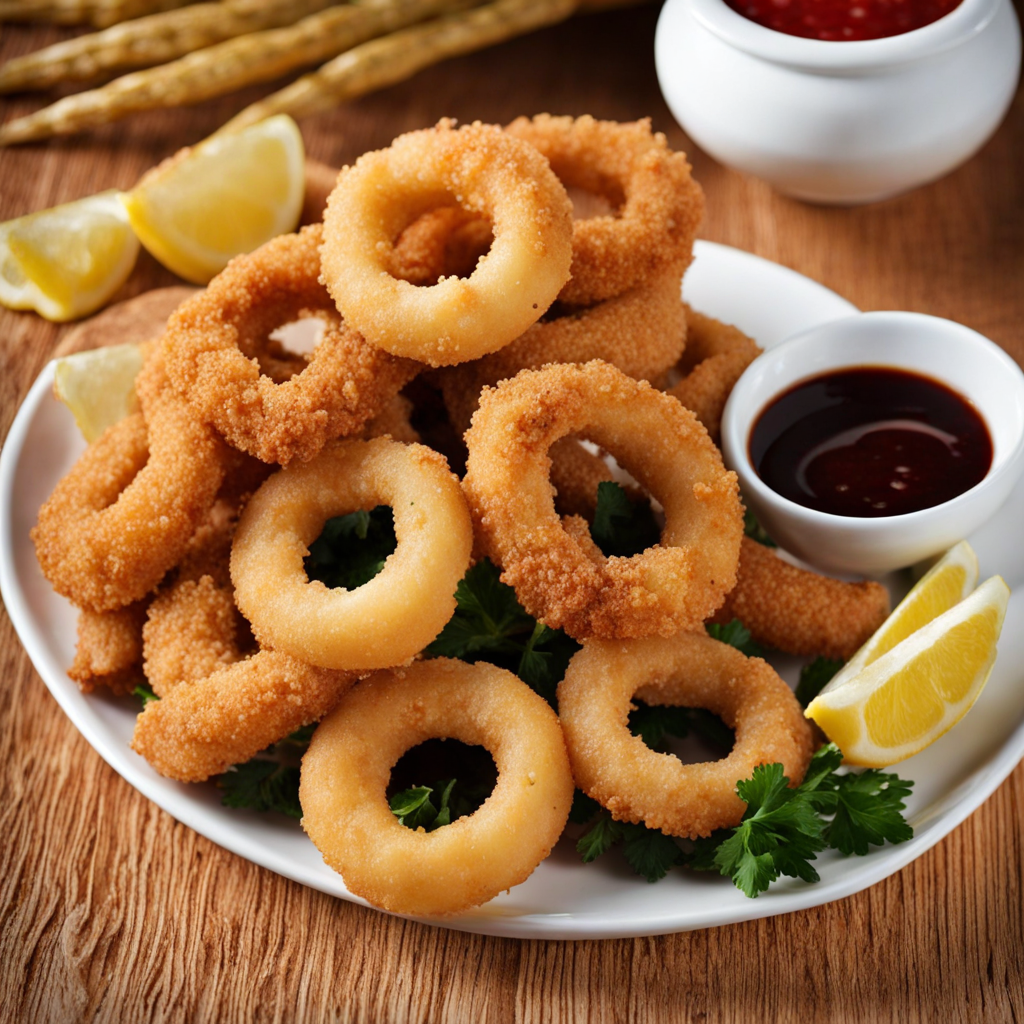Mechoui
Mechoui is a traditional Moroccan dish that embodies the rich culinary heritage of the region, centered around the art of roasting whole lamb. The preparation begins with selecting a young lamb, which is then marinated with a blend of aromatic spices, including cumin, coriander, and paprika, often enhanced by garlic and olive oil. This infusion of flavors penetrates the meat, creating a succulent and tender experience that is both flavorful and fragrant. The lamb is typically cooked slowly in a pit or over an open fire, allowing the heat to envelop the meat evenly, resulting in a crispy, golden exterior and a melt-in-your-mouth interior. As the meat cooks, it develops a smoky aroma that is irresistibly inviting. The process of roasting Mechoui is not just about the food; it is a communal event that brings family and friends together, often accompanied by traditional Moroccan bread and an array of fresh salads. The lamb is usually served whole, encouraging a hands-on dining experience where guests can tear off pieces of meat, savoring each bite with the accompanying sides. This creates a festive atmosphere, making the meal not only about the taste but also about shared moments and joyous celebrations. The final presentation of Mechoui is a sight to behold, with the whole roasted lamb adorned with spices and herbs, exuding an enticing aroma that entices diners to indulge. Each bite is a celebration of Moroccan flavors, with the tender meat offering a rich, savory taste complemented by the spices, while the crispy skin adds a delightful crunch. It is often paired with mint tea, which perfectly balances the richness of the lamb. For anyone seeking to explore Moroccan cuisine, Mechoui is an unforgettable experience that encapsulates the essence of the country's culinary traditions.
How It Became This Dish
The Rich Tapestry of مشوي: A Moroccan Culinary Delight #### Origins and Early Influences The term "مشوي" (pronounced "mashwi") in Arabic translates to "grilled" or "roasted," and in the context of Moroccan cuisine, it often refers to a variety of meats that are marinated and grilled to perfection. The origins of مشوي can be traced back to the diverse influences that shaped Moroccan culinary traditions throughout centuries. Morocco's strategic location at the crossroads of Europe, Africa, and the Middle East has made it a melting pot of cultures and cuisines. The indigenous Berber people, with their rich agricultural practices, laid the foundation for Moroccan cooking. They utilized locally sourced ingredients, such as grains, fruits, and vegetables, and developed methods to preserve meats, particularly through grilling and roasting, which were essential for survival in the region's varied climates. #### Cultural Significance Grilling is not merely a cooking technique in Moroccan culture; it is a communal celebration of life, family, and hospitality. مشوي is often prepared during gatherings, festivals, and special occasions, symbolizing generosity and the sharing of a meal. The act of gathering around a grill, whether in a bustling street market or a family backyard, fosters a sense of community and connection. In Moroccan tradition, meals are often communal, served on a large platter where everyone can share. مشوي plays a crucial role in this, as it is typically accompanied by fresh bread, salads, and flavorful sauces. The sharing of مشوي reflects the Moroccan value of hospitality, where guests are treated with the utmost respect and offered copious amounts of food. #### The Evolution of مشوي Over the centuries, مشوي has evolved, influenced by various cultural exchanges and culinary practices. The arrival of Arab influences in the 7th century brought with it new spices and cooking techniques, enriching the existing Berber practices. Spices such as cumin, coriander, and saffron became staples in Moroccan kitchens, enhancing the flavors of grilled meats. During the 15th century, the influx of Jewish communities into Morocco introduced new methods of marinating and grilling meats, which further diversified the preparation of مشوي. The Jewish community's emphasis on kosher practices also influenced the types of meat consumed and how they were prepared. In modern times, the globalization of cuisine has introduced new flavors and techniques, yet the essence of مشوي remains deeply rooted in tradition. Street vendors and food stalls in cities like Marrakech, Fes, and Casablanca continue to serve delicious مشوي, often prepared in front of diners, creating an interactive and vibrant dining experience. #### Regional Variations Morocco's diverse geography has also contributed to various regional interpretations of مشوي. In the northern regions, where Mediterranean influences are strong, مشوي may feature fish and seafood, often grilled with local herbs and spices. The coastal cities embrace fresh catch, incorporating flavors that reflect their maritime culture. In contrast, the interior regions, particularly the Atlas Mountains, favor lamb and goat in their مشوي preparations. The use of local spices, such as ras el hanout—a blend of spices specific to Moroccan cuisine—adds depth to the flavor of the grilled meat. The southern regions, influenced by Saharan traditions, might use camel meat, showcasing the adaptability of Moroccan cuisine to local resources. #### The Role of Spices and Marinades A key component of مشوي is its marinade, which typically includes a blend of spices, oil, and sometimes yogurt or lemon juice. This not only tenderizes the meat but also infuses it with rich flavors. The marinade often reflects regional spices; for example, a common mix may include paprika, cumin, garlic, and a touch of harissa for those who enjoy a bit of heat. The tradition of marinating meats is not only about flavor; it also serves a practical purpose. In the past, this technique helped preserve meat in the warm climate of Morocco, ensuring that it could be enjoyed long after it was sourced. Today, the ritual of marinating is a cherished practice that connects modern cooks with their ancestors. #### مشوي: A Culinary Experience The preparation of مشوي is an art form in itself. Chefs and street vendors take pride in their grilling techniques, often using charcoal or wood to achieve that perfect smoky flavor. The process can be mesmerizing, as the meat sizzles on the grill, releasing tantalizing aromas that waft through the air and draw passersby closer. Serving مشوي is as much about presentation as it is about taste. Traditionally, it is served on a large, colorful platter, garnished with fresh herbs and accompanied by salads such as zaalouk (a smoky eggplant salad) or a simple tomato and cucumber salad. The meal is often complemented by a glass of sweet mint tea, a staple in Moroccan culture that symbolizes hospitality and friendship. #### مشوي in Contemporary Moroccan Cuisine As Moroccan cuisine gains international recognition, مشوي has become emblematic of the country's culinary heritage. It is featured in restaurants around the world, from upscale establishments to casual eateries, showcasing its versatility and appeal. The dish has also found its way into food festivals and cultural events, where chefs experiment with modern interpretations while honoring traditional methods. Moreover, the rise of social media has allowed food enthusiasts to share their experiences with مشوي, sparking interest and inspiring home cooks to explore Moroccan flavors in their kitchens. Online recipes and cooking tutorials have made it easier than ever for people to recreate this beloved dish, fostering a sense of connection to Moroccan culture. #### Conclusion In conclusion, مشوي is not just a dish; it is a celebration of Moroccan history, culture, and community. Rooted in ancient traditions and enriched by centuries of cultural exchanges, it embodies the essence of Moroccan hospitality and culinary artistry. As it continues to evolve and adapt, مشوي remains a cherished symbol of Morocco's rich culinary heritage, inviting all to partake in its savory delights. Whether enjoyed at a bustling street stall or a family gathering, مشوي represents the heart and soul of Moroccan cuisine, inviting everyone to share in the joy of good food and cherished company.
You may like
Discover local flavors from Morocco


